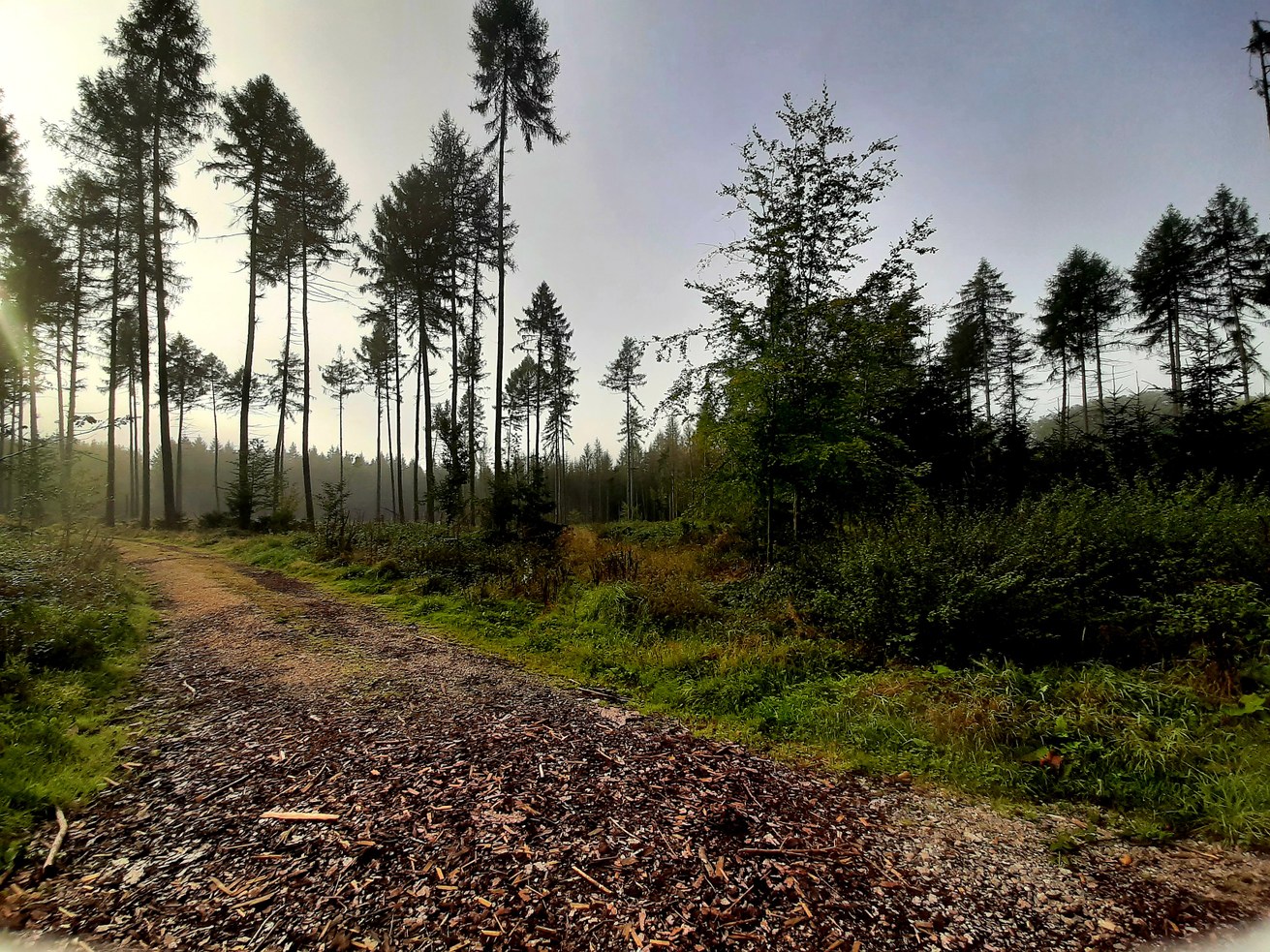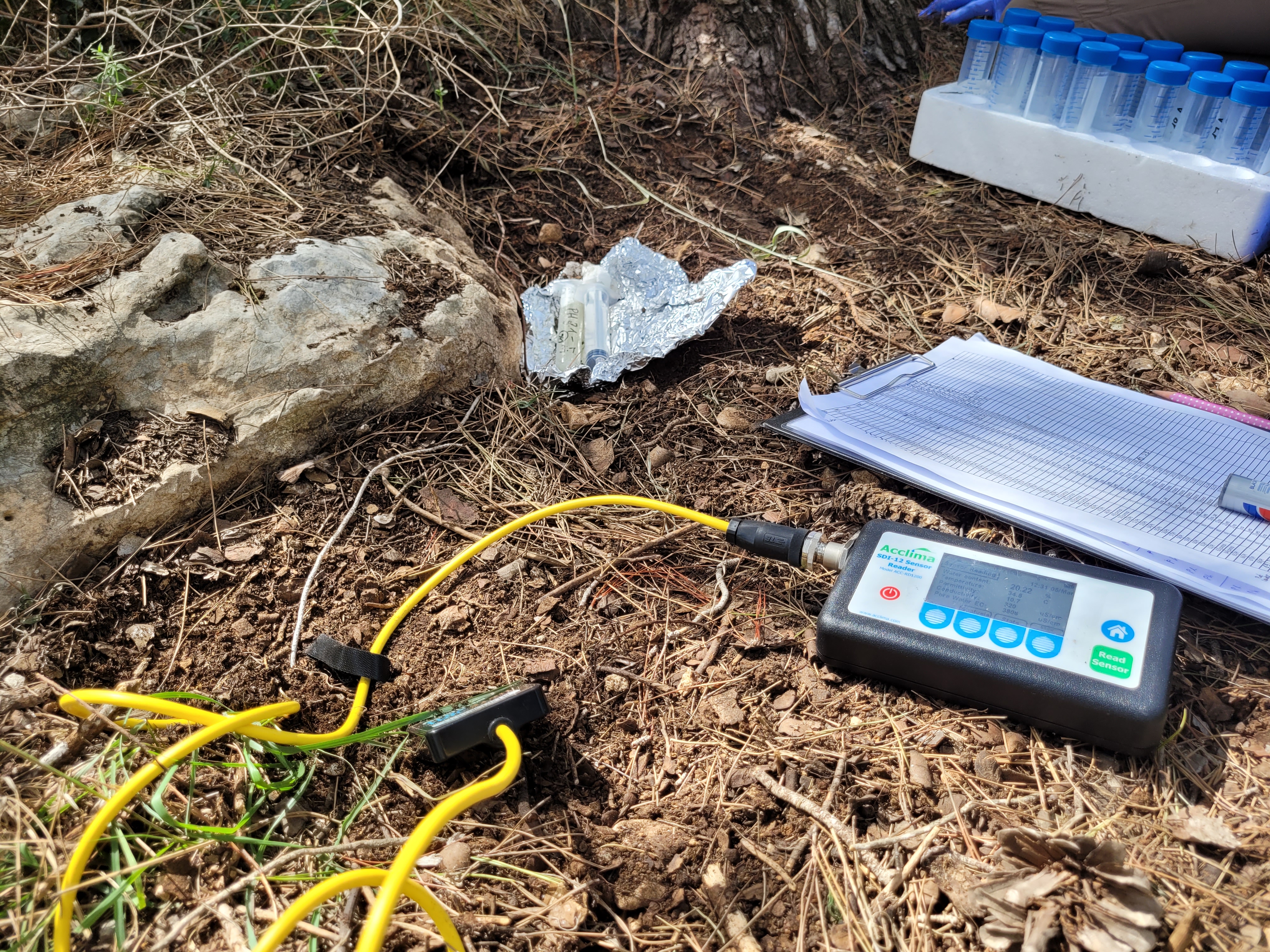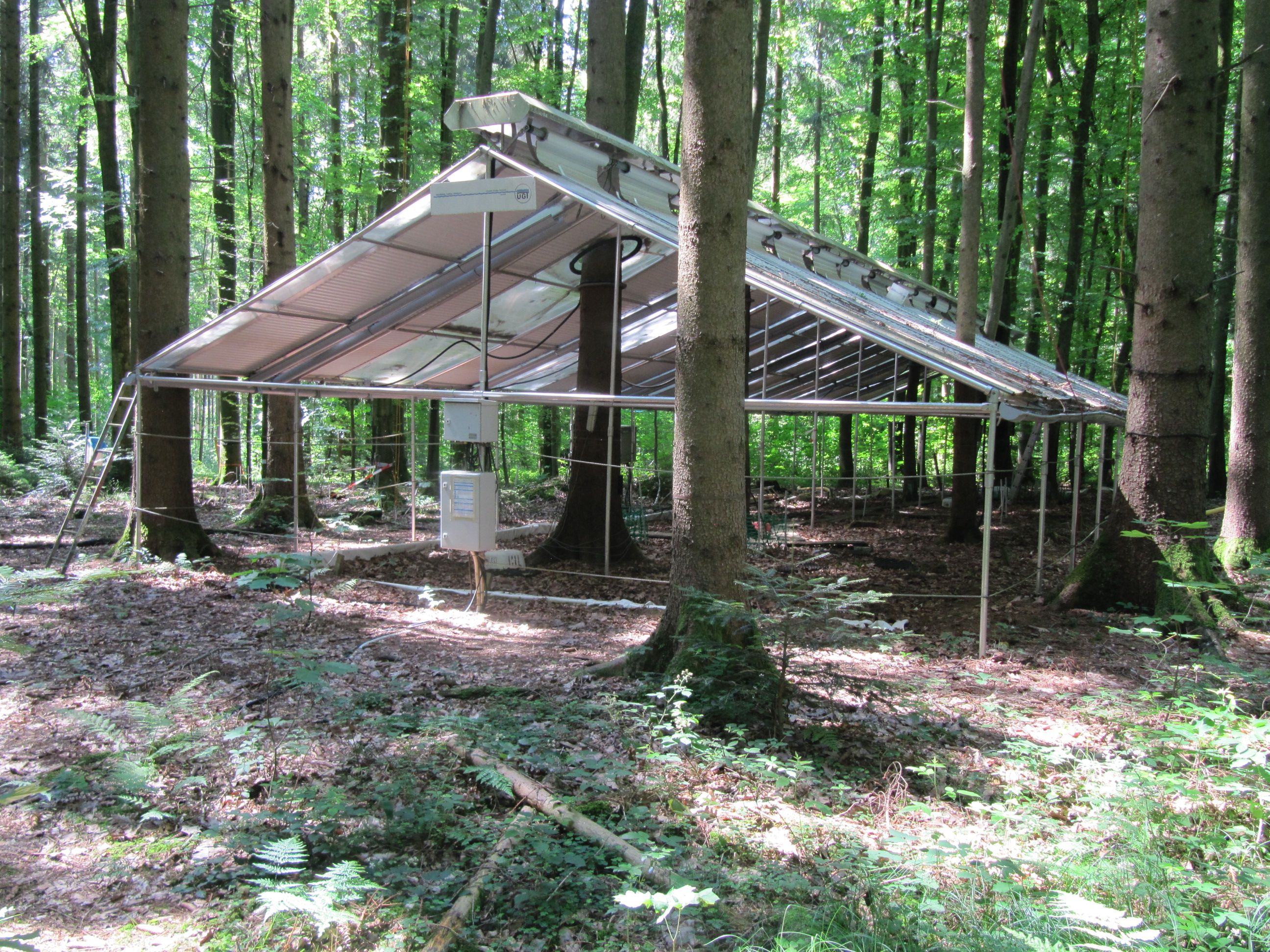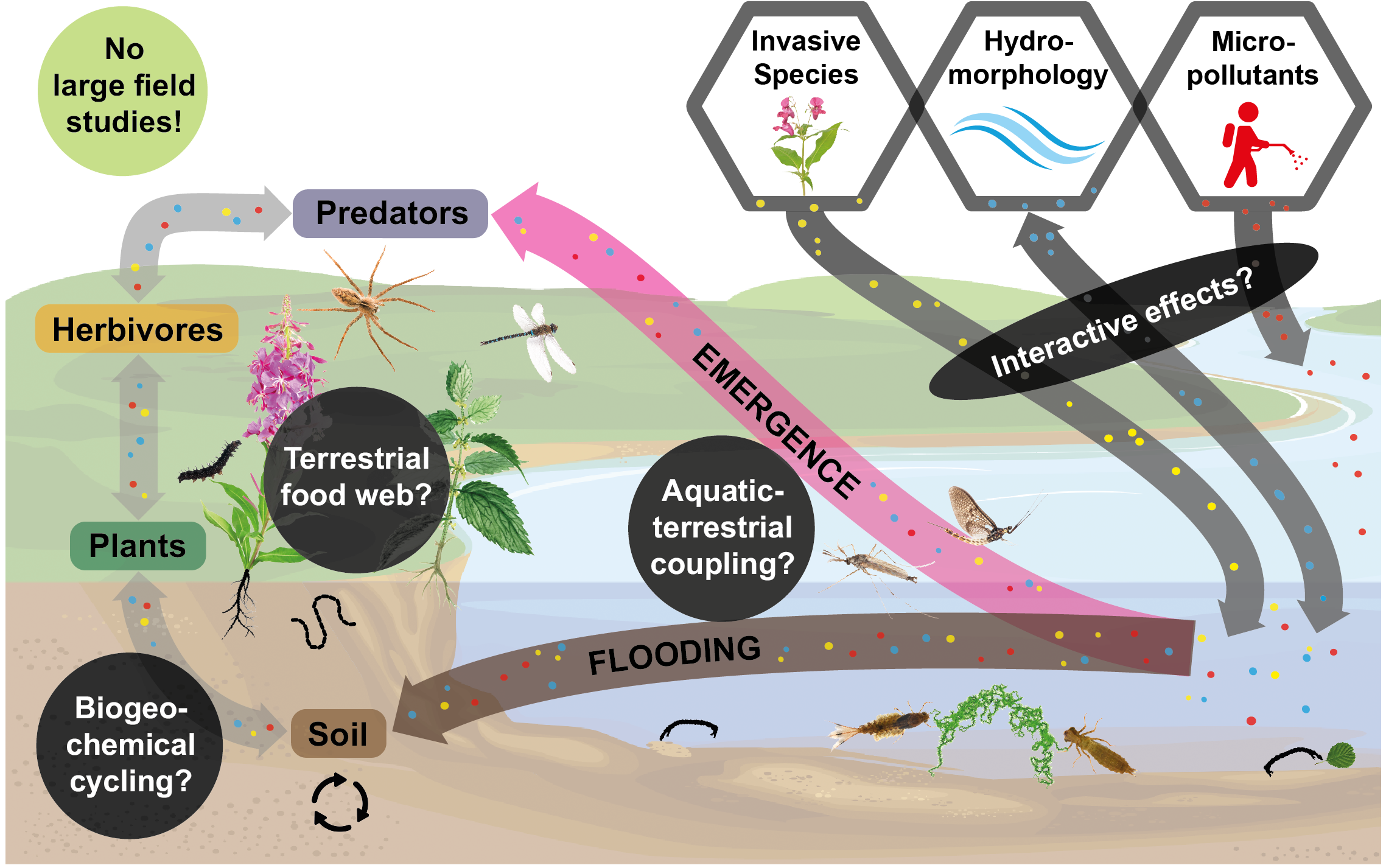Rhizosphere biogeochemistry
Climate classification
Unraveling biogeochemical strategies of invasive species
Chronosequences


Abschlussarbeiten in folgenden Bereichen
Feedback Mechanismen
Mikrobielle CO2 Fixierung
Nitrifikationshemmung als Invasionsstrategie
Kohlenstoffallokation zu Wurzelexsudaten
Klimaklassifikation

Geographisches Quartett, Geographisches Institut der Universität Bonn (GIUB)
For the second time, the ‘Geographical Quartet’ talk show organized by Geo-Medial took place in the Botanical Garden of the University of Bonn, this time on the topic of ‘Global Crises, Drought and Ecosystem Restoration’. The invited talk show guests were: Gesche Schifferdecker, Head of Communications at the European Forest Institute (EFI); Dr Daniel Tsegai, Head of the Drought Division at the United Nations Secretariat (United Nations Convention to Combat Desertification - UNCCD); Prof Dr Melanie Brunn, visiting professor and geographer at the University of Koblenz, and Julian Wagenknecht, student at the University of Bonn and activist with Extinction Rebellion. In the exciting 90-minute discussion, which also involved the audience, the topics of drought, ecosystem restoration, and the cascading effects of global crises were brought into relation with each other and examined from different (disciplinary) perspectives.
Globally, soil stores more carbon than vegetation and the atmosphere combined, making its role as a carbon sink crucial in the climate system. Carbon in the soil originates from both above-ground litter and below-ground roots, with the latter expected to contribute more significantly to soil carbon stabilization and storage potential. As a result, the rhizosphere, where plants and soil interact, is increasingly recognized as playing a critical role in the carbon cycle.
During drought conditions, the assimilation of carbon decreases, potentially reducing the carbon sink function of forest ecosystems. However, recent research reveals that soils respond differently than trees to drought, adding complexity to predicting carbon stability and storage processes in forest ecosystems. Limited study techniques hinder accurate predictions, and most studies fail to account for shorter-term dynamics in non-adapted systems, potentially underestimating ecosystem threats posed by intermittent drought periods.
In this context, the Kroof (Kranzberg Forest Roof Project) experiment stands as a globally unique field study, enabling the investigation of drought and rewetting effects on two major European tree species, beech and spruce. Employing novel sampling and analysis techniques, we aim to test the significance of carbon allocation processes under climate change.

The impact of matter input from terrestrial sources on aquatic systems is well known. The reverse process has received less attention. In SystemLink, a DFG-funded research training group located at RPTU Landau, we investigate bottom-up and top-down interactions in terrestrial ecosystems, which propagate from aquatic environments as a result of their exposure to anthropogenic stress.

Schnabel F., Guillemot J., Barry K.E., Brunn M., Cesarz S., Eisenhauer N., Gebauer T., Guerrero-Ramirez N.R., Handa I.T., Madsen .C, et al. (2025) Tree Diversity Increases Carbon Stocks and Fluxes Above—But Not Belowground in a Tropical Forest Experiment. Global Change Biol. 31(2): e70089. https://doi.org/10.1111/gcb.70089
Brunn, M., Billings, S. A., Birke, J., Nielsen, M. W., Kilian Salas, S., Brockmüller, S., Oelmann, Y. (2024): On the importance of diversity in ecological research. Opinion – Plants, People, Planet. https://doi.org/10.1002/ppp3.10553
Chari, N. R., Tumber-Dávila, S. J., Phillips, R. P., Bauerle, T. L., Brunn, M., Hafner, B. D., Klein, T., Obersteiner, S., Reay, M. K., Ullah, S., Taylor, B. N. (2024): Estimating the global root exudate carbon flux. Biogeochemistry. https://doi.org/10.1007/s10533-024-01161-z
Bölscher, T., Vogel, C., Olagoke, F. K., Meurer, K. H. E., Herrmann, A. M., Colombi, T., Brunn, M., Domeignoz-Horta, L. A. (2024): Beyond growth: The significance of non-growth anabolism for microbial carbon-use efficiency in the light of soil carbon stabilisation. Soil Biology and Biochemistry, 109400. doi:https://doi.org/10.1016/j.soilbio.2024.109400
Brunn M., Krüger J, Lang F. (2023) Experimental drought increased the belowground sink strength towards higher topsoil organic carbon stocks in a temperate mature forest. Geoderma 431
Hikino, K., Danzberger, J., Riedel, V.P., Hesse, B.D., Hafner, B.D., Gebhardt, T., Rehschuh, R., Ruehr, N.K., Brunn, M., Bauerle, T.L., Landhäusser, S.M., Lehmann, M.M., Rötzer, T., Pretzsch, H., Buegger, F., Weikl, F., Pritsch, K., Grams, T.E.E. (2022) Dynamics of initial carbon allocation after drought release in mature Norway spruce - Increased belowground allocation of current photoassimilates covers only half of the carbon used for fine-root growth. Global Change Biology 28 (23): 6889-6905
Jungkunst, H.F., Göpel, J., Horvath, T., Ott, S., Brunn, M. (2022) Global soil organic carbon-climate interactions: Why scales matter. WIREs Climate Change 13 (4): e780
Brunn, M., Hafner, B.D., Zwetlsloot, M.J., Weikl, F., Pritsch, K., Hikino, K., Ruehr, N.K., Sayer, E.J., Bauerle, T.L. (2022): Carbon allocation to root exudates is maintained in mature temperate tree species under drought. New Phytologist 235 (3)